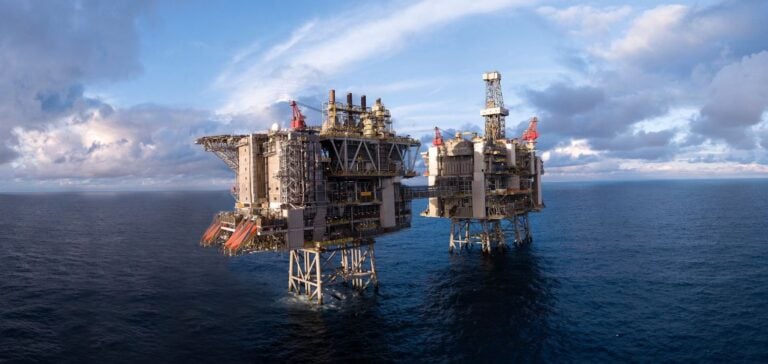Two energy giants, Shell and Equinor, have formalized the merger of their North Sea assets, establishing a joint entity headquartered in Aberdeen, Scotland. This new company, equally owned by both groups, will become the largest independent producer in the UK’s North Sea waters, with an estimated production capacity of 140,000 barrels of oil equivalent per day (boe/d).
The combined production includes Equinor’s 38,000 boe/d and Shell’s 100,000 boe/d. However, this volume remains marginal compared to the global output of the two companies, with Equinor alone producing nearly 2 million boe/d worldwide.
A context marked by the decline of reserves
North Sea oil fields have been in decline for years, reaching maturity. Shell and Equinor hope that this merger will maximize the exploitation of remaining resources while reducing operational costs. According to their statements, this partnership aims to maintain the profitable extraction of a strategic resource for the UK.
The merger, effective from January 1, 2025, will not involve any cash transactions between the parties, as confirmed by Equinor. Key projects in the new portfolio include the Rosebank oil and gas field, which is already controversial and subject to legal battles. Both companies are also exploring opportunities to take this entity public in the medium term.
Economic and environmental reactions
On the markets, the announcement triggered mixed reactions: at the Oslo Stock Exchange, Equinor’s shares rose slightly by 0.13%, while Shell’s shares fell by nearly 1% in London.
Environmental criticism did not take long to emerge. Greenpeace denounced the move as an attempt to “conceal the terminal decline of the industry” and reiterated its call for the UK government to ban new oil permits. The NGO also highlighted environmental and legal challenges tied to projects like Rosebank.
Retention of strategic assets and diversification
Despite this merger, both companies will retain individual strategic assets. Equinor will keep its transboundary Norway-UK fields as well as its renewable energy projects, particularly offshore wind. Meanwhile, Shell will continue to operate its Fife liquefied natural gas plant, the St Fergus gas terminal, and its ongoing offshore wind developments.
As the oil industry faces increasing challenges, this merger highlights the need for major companies to adapt to economic realities and environmental pressures. However, questions remain about the long-term viability of such operations amid ongoing energy transitions.





















